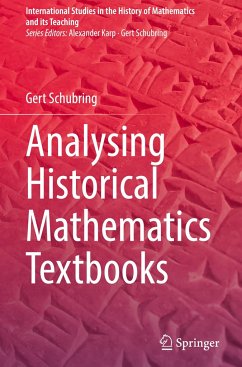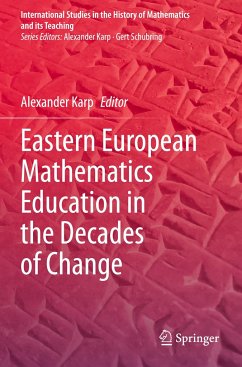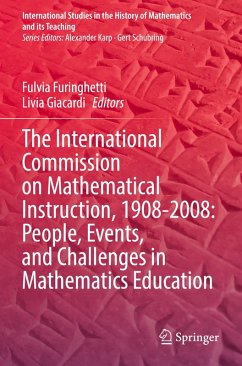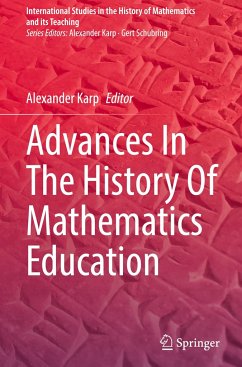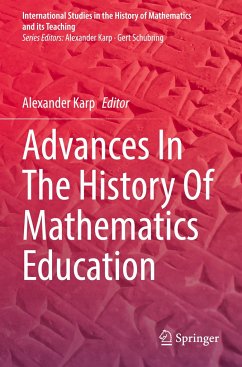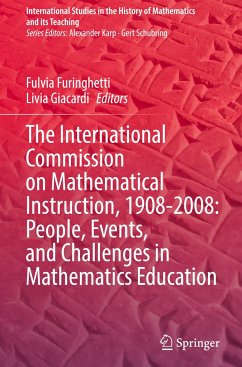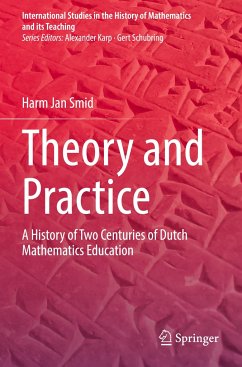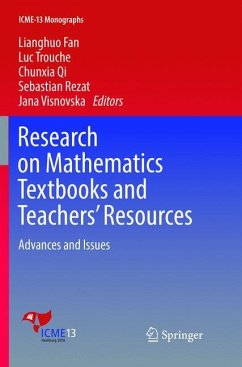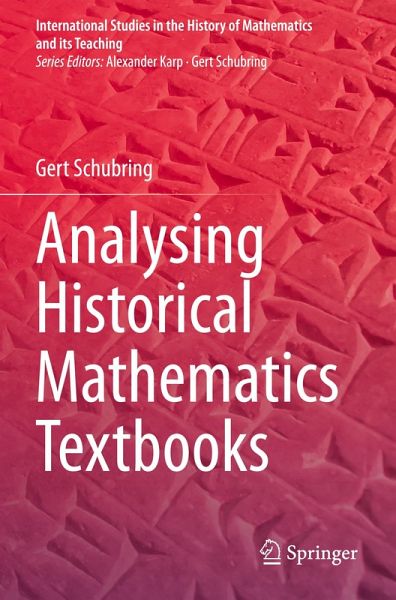
Analysing Historical Mathematics Textbooks
Versandkostenfrei!
Versandfertig in 6-10 Tagen
91,99 €
inkl. MwSt.
Weitere Ausgaben:

PAYBACK Punkte
46 °P sammeln!
This book is about the creation and production of textbooks for learning and teaching mathematics. It covers a period from Antiquity to Modern Times. The analysis begins by assessing principal cultures with a practice of mathematics. The tension between the role of the teacher and his oral mode, on the one hand, and the use of a written (printed) text, in their respective relation with the student, is one of the dimensions of the comparative analysis, conceived of as the 'textbook triangle'. The changes in this tension with the introduction of the printing press are discussed. The book present...
This book is about the creation and production of textbooks for learning and teaching mathematics. It covers a period from Antiquity to Modern Times. The analysis begins by assessing principal cultures with a practice of mathematics. The tension between the role of the teacher and his oral mode, on the one hand, and the use of a written (printed) text, in their respective relation with the student, is one of the dimensions of the comparative analysis, conceived of as the 'textbook triangle'. The changes in this tension with the introduction of the printing press are discussed. The book presents various national case studies (France, Germany, Italy) as well as analyses of the internationalisation of textbooks via transmission processes.
As this topic has not been sufficiently explored in the literature, it will be very well received by scholars of mathematics education, mathematics teacher educators and anyone with an interest in the field.
As this topic has not been sufficiently explored in the literature, it will be very well received by scholars of mathematics education, mathematics teacher educators and anyone with an interest in the field.



